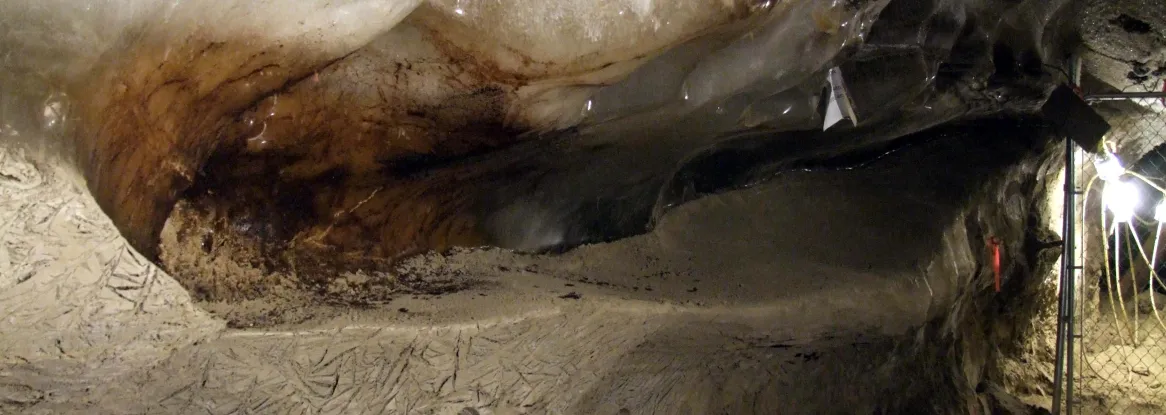Carbon dioxide released from thawing permafrost may have contributed to a major global warming events about 55 million years ago, suggests a new study published today in the journal Nature. NSIDC scientists Tingjun Zhang and Kevin Schaefer contributed to the study, which was led by climate scientist Robert DeConto of the University of Massachusetts.
The study suggests that carbon released from thawing permafrost could explain the ancient warming event known as the Paleocene-Eocene Thermal Maximum (PETM) and a series of smaller warming events that followed, between 55 and 52 million years ago. Schaefer estimated permafrost carbon storage and release in the Arctic and Antarctica, based on current observations of carbon storage in permafrost. He said, "We found that changes in the Earth's orbit triggered massive releases of CO2 and methane from thawing permafrost in Antarctica."
Previous research had shown that atmospheric carbon levels rose massively during the PETM, and temperatures warmed by about 5 degrees Celsius. Researchers had thought that most of the carbon released during that time came from frozen methane gas in ocean sediments. The new study found that instead, carbon dioxide and methane released from thawing permafrost amplified warming due to changes in the Earth's orbit.
Schaefer and Zhang have previously studied how the carbon stored in permafrost could contribute to future climate warming. Schaefer said, "If the Arctic permafrost thaws out, it will release carbon dioxide and methane into the atmosphere and amplify warming due to the burning of fossil fuels." For more details on his work, see the 2011 press release: Thawing permafrost will accelerate global warming in decades to come, says new study.
For more information on the study, read the press release from the University of Massachusetts News Office. The journal article is available from the journal Nature (subscription may be required), or upon request.
For further inquiries, please contact the NSIDC press office at press@nsidc.org or +1 303.492.1497.
